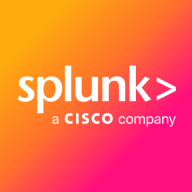

Splunk Enterprise Security and Seceon Open Threat Management Platform are competitors in the cybersecurity sector, each tackling security challenges with unique methods. Based on current data, Seceon Open Threat Management Platform has the upper hand due to its comprehensive features and cost-effectiveness.
Features: Splunk Enterprise Security stands out with advanced analytics, real-time monitoring, and data integration, providing robust threat detection. Meanwhile, Seceon Open Threat Management Platform offers comprehensive automatic threat detection, AI-driven analytics, and a unified approach to security, which enhances proactive threat management.
Room for Improvement: Splunk Enterprise Security could benefit from simplifying its resource-intensive deployment and extending its built-in correlation rules. It also relies heavily on skilled personnel for optimal setup. Seceon Open Threat Management Platform could improve by expanding its integration capabilities and reducing its learning curve for new users to better compete with Splunk's widespread adoption.
Ease of Deployment and Customer Service: Deployment of Splunk Enterprise Security is robust but demands substantial resources and expertise, often leading to prolonged deployment timelines. Seceon Open Threat Management Platform is easier to deploy with intuitive procedures, reducing complexity and resource needs. Seceon provides proficient customer service, offering a responsive and supportive experience compared to Splunk's more resource-demanding process.
Pricing and ROI: Splunk Enterprise Security usually involves higher initial costs reflecting its extensive technical capabilities, potentially leading to better ROI for large enterprises emphasizing deep analytics. Seceon Open Threat Management Platform provides a more budget-friendly alternative with effective threat management, appealing to organizations seeking cost-effective solutions. Both platforms promise substantial ROI based on enterprise requirements.
| Product | Market Share (%) |
|---|---|
| Splunk Enterprise Security | 7.2% |
| Seceon Open Threat Management Platform | 0.8% |
| Other | 92.0% |

| Company Size | Count |
|---|---|
| Small Business | 8 |
| Midsize Enterprise | 5 |
| Large Enterprise | 1 |
| Company Size | Count |
|---|---|
| Small Business | 112 |
| Midsize Enterprise | 50 |
| Large Enterprise | 266 |
Seceon Open Threat Management Platform is a comprehensive cybersecurity solution that offers real-time threat detection, analysis, and response capabilities. It leverages advanced AI and machine learning algorithms to provide proactive threat hunting and automated incident response.
With its intuitive dashboard, users can gain complete visibility into their network, applications, and endpoints, enabling them to identify and mitigate potential risks effectively. The platform integrates seamlessly with existing security infrastructure, consolidating data from various sources for centralized monitoring and analysis.
Its threat intelligence feeds and behavioral analytics enable the identification of both known and unknown threats, ensuring comprehensive protection against advanced cyber attacks. Seceon Open Threat Management Platform empowers security teams with actionable insights, enabling them to prioritize and respond to threats swiftly. With its automated remediation capabilities, it minimizes the impact of attacks and reduces response time. The platform also offers customizable reporting and compliance management features, facilitating regulatory compliance and providing stakeholders with comprehensive security status updates.
Seceon Open Threat Management Platform is a robust and scalable solution that caters to the evolving cybersecurity needs of organizations across industries.
Splunk Enterprise Security delivers powerful log management, rapid searches, and intuitive dashboards, enhancing real-time analytics and security measures. Its advanced machine learning and wide system compatibility streamline threat detection and incident response across diverse IT environments.
Splunk Enterprise Security stands out in security operations with robust features like comprehensive threat intelligence and seamless data integration. Its real-time analytics and customizable queries enable proactive threat analysis and efficient incident response. Integration with multiple third-party feeds allows detailed threat correlation and streamlined data visualization. Users find the intuitive UI and broad compatibility support efficient threat detection while reducing false positives. Despite its strengths, areas such as visualization capabilities and integration processes with cloud environments need enhancement. Users face a high learning curve, and improvements in automation, AI, documentation, and training are desired to maximize its potential.
What Are the Key Features of Splunk Enterprise Security?In specific industries like finance and healthcare, Splunk Enterprise Security is instrumental for log aggregation, SIEM functionalities, and compliance monitoring. Companies leverage its capabilities for proactive threat analysis and response, ensuring comprehensive security monitoring and integration with various tools for heightened operational intelligence.
We monitor all Security Information and Event Management (SIEM) reviews to prevent fraudulent reviews and keep review quality high. We do not post reviews by company employees or direct competitors. We validate each review for authenticity via cross-reference with LinkedIn, and personal follow-up with the reviewer when necessary.